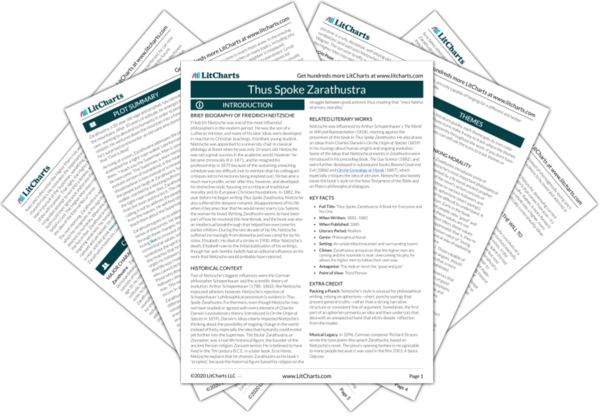By “contempt,” Zarathustra means something like the realization that one is not living with one’s whole heart and effort. He extends this idea further, and hints at his departure from conventional morality, when he describes half-hearted sin as more offensive than sin in itself. According to Zarathustra, humanity’s evolution to become Superman will liberate people from those things that garner contempt—but the people reject Zarathustra’s teaching. They don’t understand, and they aren’t interested anyway—they’d rather watch a spectacle.
